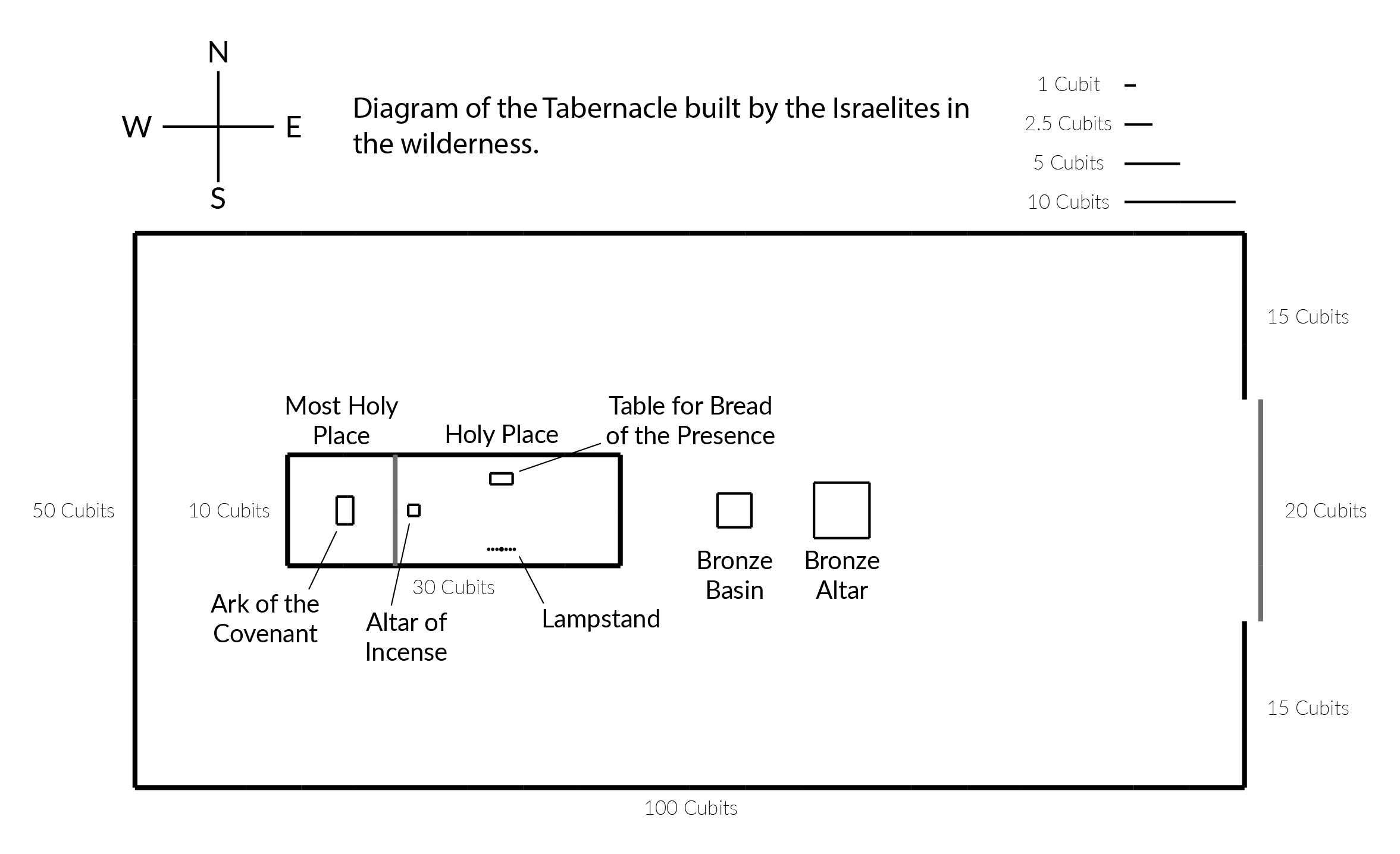Leviticus 10 Summary: A Short Breakdown in 5 Minutes
Leviticus 10 Summary - A Quick Overview
WHEN:
Leviticus picks up where Exodus left off. The children of Israel are on their way through the wilderness to the Canaan land.
According to Leviticus 8, the Tabernacle had already been erected, which would place the year at approximately 1490 B.C. (one year after the Israelites left Egypt).
TABERNACLE DIAGRAM
OUTLINE:
THE LORD KILLS NADAB AND ABIHU (10:1-7):
Nadab and Abihu entered the Tabernacle and offered an incense sacrifice to the Lord.
But God was displeased with their actions because they “offered unauthorized fire before the Lord, which He had not commanded them.”
Fire came out from the Lord and killed Aaron’s two sons.
Moses asked two of his cousins, Mishael and Elzaphan, to carry Nadab and Abihu’s bodies outside of the camp.
Aaron and the other priests were forbidden from publicly mourning the dead and they were told to remain in the Tabernacle.
GOD SPEAKS TO AARON (10:8-11):
The Lord spoke to Aaron and forbid him and his sons from drinking alcohol before entering the Tabernacle.
The priests were to set the example of holiness and teach the people all the laws of God.
MOSES SPEAKS TO AARON (10:12-20):
Moses reminded Aaron and his sons to complete their daily offerings in the manner God prescribed.
He was angry at Aaron’s other sons, Eleazar and Ithamar, because they had not eaten the meat of the goat used for a sin offering.
Aaron told Moses he had not thought it appropriate to eat the meat of the sin offering considering the events of the day.
After hearing his explanation, Moses agreed.
APPLICATION:
Do you think God overreacted in killing Nadab and Abihu?
I’ve heard a lot of people accuse God of overreacting for killing Nadab and Abihu for doing something as small as using “unauthorized fire.”
But maybe the problem is that we tend to underreact to unholiness.
In my experience, people tend to downplay the holiness of God by downplaying the seriousness of their sins, or by assuming sin isn’t as serious now that Jesus died for them.
We don’t take God’s holiness seriously enough. Yes, He is our Father, and yes, we have a relationship with Him, but our closeness to Him doesn’t mean He hates sin less than He did in Leviticus 10.
It’s not as if God is more comfortable with our sinning now that Jesus died for us.
If we aren’t careful, we can fall into the trap of assuming our sins aren’t serious because we, in our failings, give Jesus’ grace a chance to abound (Romans 6:1-2).


